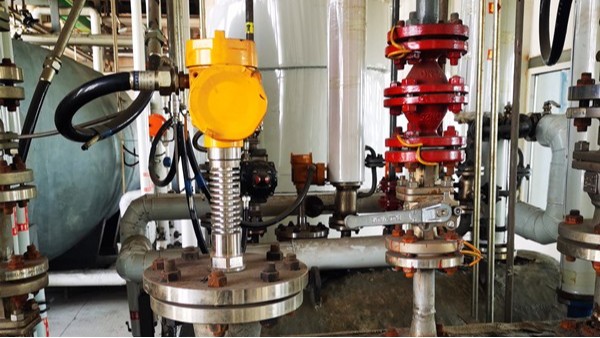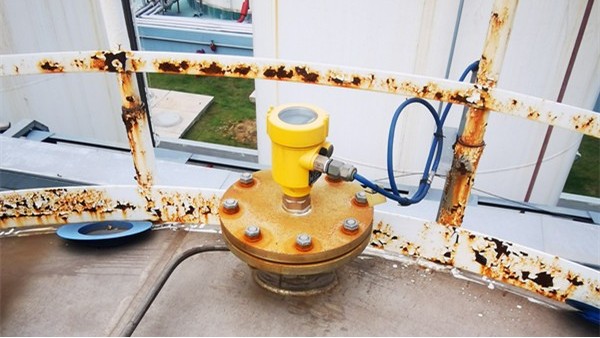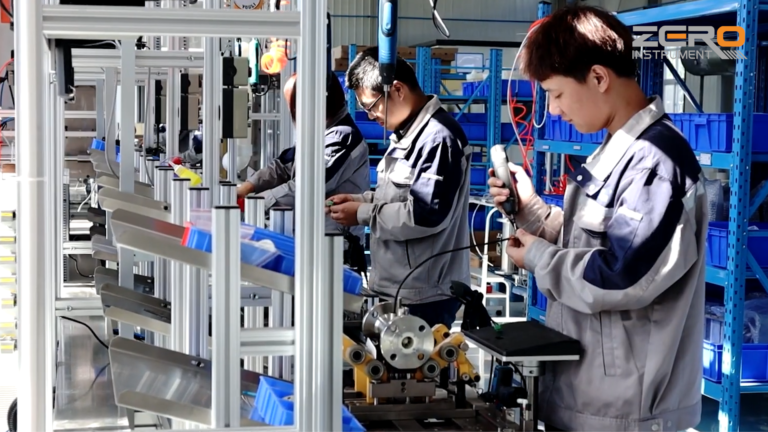Accurate measurement of liquid level is crucial for many industries in the industrial production process. Dissolving tanks, as commonly used equipment, play an important role in the chemical, pharmaceutical, and food industries. To ensure that the liquid level in the dissolving tank can be accurately monitored and controlled, a non-contact radar level meter becomes a viable option.

Dissolving tanks are usually used to dissolve solid substances in liquids, which are characterized by the following features: Large capacity: Dissolving tanks usually have a large capacity and can hold a large amount of dissolved substances and solvents.
Variety of materials: Dissolving tanks can be made of different materials, such as stainless steel, glass fiber reinforced plastic, etc., in order to adapt to different chemical properties and process requirements.
Frequent level changes: Due to the different dissolution rates of solids, the liquid level in the dissolution tank may change very quickly. Therefore, the requirement for the liquid level meter is a real-time and accurate response to the liquid level change.

There are a number of challenges and difficulties in the measurement of dissolving tank levels. Many dissolved substances are corrosive, which places high demands on the materials used for sensors. Conventional level gauges can be corrosive and are not suitable for these environments.
Therefore, choosing the right material is critical. Some dissolution tanks may be subjected to high temperatures or pressures during operation. This places higher demands on the performance and stability of the level gauge.
The difference in level change between the tank wall and the surface of dissolved substances: Inside the dissolution tank, dissolved substances form bubbles, particles, and other objects on the surface, which may cause deviation in level measurement.
Therefore, there is a need to ensure the accuracy and reliability of the measurement results.

We can take a common dissolution process in the chemical industry as an example of how to apply a non-contact radar level meter to measure the level of a dissolution tank.
A chemical plant uses a dissolution tank to dissolve dyestuff, in which the dyestuff and solvent are mixed and the level changes as the reaction proceeds. Since the dyes are highly corrosive, traditional level meters cannot be used in this environment.
To solve this problem, the engineers chose a non-contact radar level meter. This level meter uses radar technology to measure the liquid level by transmitting and receiving radar waves.
Because the non-contact radar level meter is corrosion-resistant and adapts to high-temperature and high-pressure environments, it is ideally suited for level measurement during dissolution processes.
In addition, the non-contact radar level meter can accurately detect the difference between the tank wall and the liquid level as well as the influence of surface objects by its high frequency and short pulse characteristics.
In the actual use of this chemical plant, the non-contact radar level meter accurately monitors and records the changes in the liquid level in the dissolving tank, ensuring normal operation and quality control of production.
In general, a non-contact radar level meter has many advantages in liquid level measurement, especially in special environments with higher adaptability. When choosing a liquid level meter, it should be combined with the actual situation for comprehensive consideration and choose the most suitable program.
